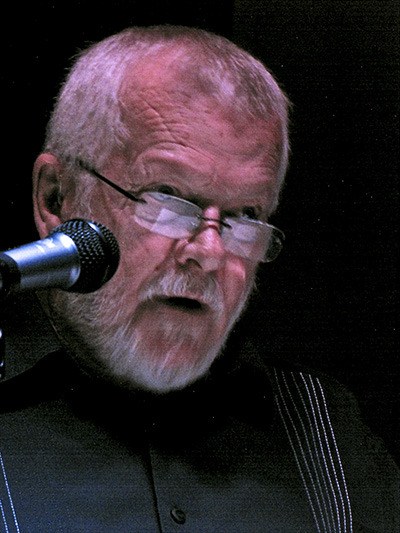Acclaimed poet Sam Hamill once said that poetry teaches us things that cannot be learned in prose. He spoke about the part of a poem that is left unsaid and how poetry frames experiences that lie beyond naming.
Yet, the author of more than 40 books and distinguished translations uses language to harken the ineffable and highlight the political. In his latest book, “Habitation,” Hamill culled through the vast body of his poetry, selecting poems that represent a lifetime. He will sign and read from his new book at 5 p.m. Saturday at the Vashon Bookshop.
“The collected poems give a sense of (Hamill’s) work from beginning to fruition, a sweeping view of a poet’s life and work,” said local poet Tom Pruiksma, who asked Hamill to return to the island and will introduce the poet.
Hamill first came to Vashon in 2011 to close the Vashon Poetry Festival with his talk, “The Poet’s Way in Wartime.” The poet is well-known for refusing an invitation to speak at the White House in 2003 in protest of the Iraq war and then establishing Poets Against War.
Co-founder of Copper Canyon Press, a house dedicated to publishing poetry, Hamill is a giant in the world of poets. Author Jim Harrison puts Hamill in the category of a national treasure, while poet Jane Hirshfield said, “Sam Hamill is a writer unabashedly taking his place within the community of literature and the community of all sentient beings — his fidelity is to the magnificent truth of existence and to its commensurate singing.”
Yet Pruiksma, who calls Hamill a friend and former mentor who helped Pruiksma with his first book of translation, “Give Eat and Live: Poems of Avvairar,” said that, as a translator, Hamill has not received his due, perhaps because of the brilliance of his work. Translation, Pruiksma said, is a way of apprenticing yourself to another eminent poet by entering not just their language but their sensibilities and spirit as well. Ideally, he said, the translated poem is faithful to the original but lives and breathes as its own poem.
“Sam has been one of the great, and perhaps not as celebrated, translators,” Pruiksma said. “He’s so good that he vanishes, so the original poet is shining through the poem. That’s the translator’s paradox — the translator disappears.”


